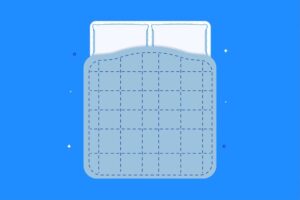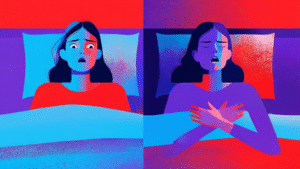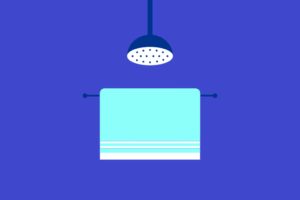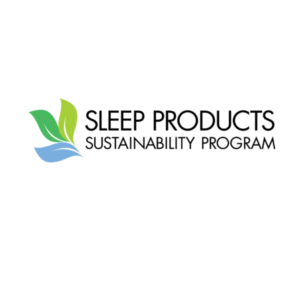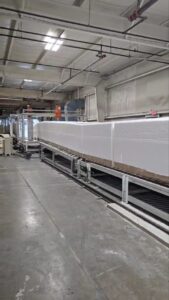May a Deviated Septum Be Ruining Your Sleep? – Sleeplay

Ever really feel such as you simply cannot get sufficient air by your nostril, or possibly you are a loud nighttime breather? The explanation may be less complicated than you suppose – it could possibly be associated to the construction inside your nostril. Your nasal septum, the skinny wall of bone and cartilage dividing your nasal cavity, is supposed to sit down centered for balanced airflow. However when it is “deviated,” this wall is off-center, making one nasal passage smaller and infrequently obstructing airflow.

Consider it or not, a deviated septum is extremely widespread. Specialists estimate that as much as 80% of individuals have some stage of nasal septum deviation (in response to WebMD and Cleveland Clinic). [1] [2] Many aren’t even conscious they’ve it, particularly if the deviation is minor and does not trigger noticeable issues day-to-day.
So, how does a deviated septum have an effect on you? When the deviation is critical, it merely makes respiratory by your nostril more durable. This could result in persistent nasal congestion (usually worse on one facet), feeling like you possibly can solely breathe properly by one nostril, or noisy respiratory, particularly while you lie all the way down to sleep.
Right here’s why that issues: Struggling for air by your nostril is not simply annoying; it will possibly severely mess along with your sleep high quality. Lowered airflow means much less environment friendly oxygen consumption throughout relaxation. Whereas it’d appear to be only a stuffy nostril, this type of disrupted respiratory could possibly be an indication of, or contribute to, extra vital sleep issues like obstructive sleep apnea. It’s price understanding the connection.
Major Causes and Signs: Is Your Respiratory Downside Nasal or Sleep-Associated?
So, you understand what a deviated septum is, however why does it occur? And how are you going to inform in case your signs level in the direction of a nasal challenge like a deviated septum, or one thing doubtlessly extra severe like sleep apnea? Let’s break it down.
1. What Causes a Deviated Septum?
A deviated septum is not all the time one thing you develop; generally, it is simply the way in which your nostril shaped. Listed below are the principle the explanation why that dividing wall in your nostril may be off-center:
-
Being Born With It (Congenital): For many individuals, a deviated septum is just current from delivery. It could happen throughout fetal improvement, only a pure variation because the nostril takes form. A WebMD article confirms this can be a widespread trigger.
-
Harm or Trauma: A blow to the nostril is a really frequent perpetrator. This might occur throughout contact sports activities, from a fall, a automotive accident, and even tough play throughout childhood. Generally, an damage occurs early in life, however the respiratory issues solely turn out to be noticeable afterward.
-
Pure Progress and Getting old: Generally, the septum can proceed to shift or deviate as a part of the conventional growing old course of or throughout development spurts in adolescence. What might need been a minor deviation can turn out to be extra pronounced over time.
It is common for individuals to not understand they’ve a deviated septum, or for signs to solely seem or worsen later in life.
2. Widespread Indicators & Signs of a Deviated Septum
In case your septum is considerably deviated, you may expertise some tell-tale indicators associated to airflow. Preserve a watch out for:
-
Nasal congestion or blockage: That is usually the most typical grievance, and it often feels worse on one facet. It would really feel such as you continually have a stuffy nostril that does not clear.
-
Issue respiratory by your nostril: You may discover it noticeably more durable to inhale or exhale by your nasal passages.
-
Frequent nosebleeds: The altered airflow can generally dry out the nasal lining, making nosebleeds extra seemingly.
-
Noisy respiratory throughout sleep: Whereas not essentially sleep apnea, struggling to get air by a narrowed passage may cause loud night breathing or loud respiratory sounds.
-
Recurrent sinus infections: Poor drainage as a result of blockage can generally contribute to sinus points.
-
Preferring to sleep on one facet: You may end up subconsciously turning to a particular facet in mattress to breathe extra simply by the much less obstructed nostril.
3. Key Signs of Obstructive Sleep Apnea (OSA)
In keeping with medical research, Obstructive Sleep Apnea is totally different – it is not nearly airflow problem, it is about respiratory stopping repeatedly throughout sleep.[3] Whereas a deviated septum can contribute to OSA (in response to a Cleveland article), the core signs of OSA itself usually embody:
-
Loud, disruptive loud night breathing: Usually remarked upon by companions or members of the family.
-
Gasping or choking throughout sleep: Witnessed episodes the place respiratory stops, generally adopted by gasping or choking sounds as respiratory restarts. These sleep disturbances are a trademark signal.
-
Extreme daytime sleepiness or fatigue: Feeling exhausted regardless of spending sufficient time in mattress is a significant pink flag. Low oxygen ranges throughout sleep influence general sleep high quality.
-
Morning complications: Waking up with complications commonly.
-
Dry mouth or sore throat upon waking.
-
Issue concentrating or “mind fog” in the course of the day.
-
Temper swings, irritability, or melancholy.
4. Deviated Septum vs. OSA Signs: Recognizing the Distinction
It may be complicated as a result of some signs overlap, particularly loud night breathing. Right here’s a fast comparability:
|
Symptom |
Deviated Septum |
Sleep Apnea |
Each |
|
Nasal Congestion/Blockage |
✅ |
❌ |
|
|
Loud Loud night breathing |
✅ (generally) |
✅ |
✅ |
|
Interrupted Respiratory at Evening |
❌ |
✅ |
|
|
Frequent Sinus Infections |
✅ |
❌ |
|
|
Daytime Fatigue/Sleepiness |
❌ |
✅ |
|
|
Bother Respiratory By the Nostril |
✅ |
❌ |
This desk helps present which signs level extra strongly in the direction of one situation or the opposite.
5. Spot Pink Flags
Take note of the patterns in your signs. Ask your self:
-
Is your problem respiratory noticeably worse while you lie down?
-
Do you snore loudly, and usually really feel drained or unrefreshed the subsequent day?
-
Do you appear to get sinus infections extra usually than others?
-
Are your nasal signs (like congestion) predominantly on one facet?
Should you’re ticking containers associated to each nasal points and sleep disturbances (like daytime fatigue or reported respiratory pauses), it is a good suggestion to consider each potentialities. Do not ignore these indicators – consulting with a specialist, like an Ear, Nostril, and Throat (ENT) physician or a sleep drugs doctor, is the easiest way to get a transparent analysis and talk about remedy choices.
Deviated Septum vs. Sleep Apnea: What is the Actual Connection?
It is a widespread query: Does having a deviated septum imply you may robotically develop sleep apnea? Many individuals assume there is a direct cause-and-effect hyperlink, however the relationship is extra nuanced. Let’s clear issues up:
A deviated septum just isn’t a direct reason behind sleep apnea, however it will possibly definitely worsen current signs or make underlying obstructive sleep apnea (OSA) extra obvious.
Consider it this fashion: a deviated septum primarily causes nasal obstruction, making it more durable to breathe by your nostril. Obstructive sleep apnea, then again, is in regards to the airway collapsing or turning into blocked additional down in your throat throughout sleep. Whereas distinct, these points can affect one another.
What the Science Says
Analysis paints an image of correlation, not direct causation, when taking a look at deviated septum and sleep apnea:
-
Mayo Clinic factors out that whereas situations like a deviated septum can block airflow by your nostril, they don’t seem to be usually thought of the sole reason behind OSA.[4] The first challenge in OSA is the throat airway collapse.
-
WebMD echoes this, suggesting that whereas a deviated septum may not trigger OSA by itself, the ensuing nasal obstruction can amplify signs, particularly when you additionally take care of points like allergy symptoms that additional compromise respiratory.
-
A compelling 9-year research printed in PMC (PubMed Central) discovered a big hyperlink: people recognized with a deviated septum had a notably increased chance, 4.39 instances increased, of subsequently being recognized with OSA in comparison with these and not using a deviated septum.
It is essential to know this can be a robust correlation, indicating a relationship or shared threat issue, nevertheless it does not show the deviated septum precipitated the sleep apnea in these people.
|
Key Stat: Folks with a deviated septum analysis have been discovered to be 4.39 instances extra prone to develop OSA afterward, in response to a big 9-year research. (Supply: PMC) |
Sleep Apnea: Usually Extra Than One Trigger
Obstructive Sleep Apnea is often a multifactorial situation. This implies a number of elements usually mix to create the issue. A deviated septum inflicting nasal obstruction may be one piece of this puzzle, nevertheless it not often acts alone. Different widespread contributors embody:
-
Different Structural Points: Enlarged tonsils or adenoids, a big tongue, a thick neck circumference, or particular jaw alignments.
-
Weight problems: Extra weight, significantly across the neck, is a significant threat issue.
-
Genetics: Household historical past can play a job.
-
Getting old: Muscle tone within the airway can lower with age.
-
Neuromuscular Management: Points with how the mind indicators the airway muscle groups.
-
Way of life Habits: Alcohol consumption (particularly close to bedtime), smoking, and sleeping place (back-sleeping usually worsens OSA).

A deviated septum contributes to rising airflow resistance within the higher airway. This added pressure could make throat collapse extra seemingly in vulnerable people or make current OSA worse. It could additionally make therapies like CPAP more durable to make use of comfortably, affecting CPAP compliance.
Why Understanding the Distinction Issues
Misunderstanding the hyperlink between a deviated septum and OSA can result in issues:
-
Delayed Analysis: Somebody may endure surgical procedure to repair their septum, pondering it is going to “treatment” their sleep points, with out realizing they’ve underlying OSA that also wants analysis and remedy (like CPAP). Their nasal obstruction may enhance, however the harmful respiratory pauses throughout sleep might proceed.
-
Lowered Remedy Effectiveness: In case you have OSA and use CPAP, untreated vital nasal obstruction from a deviated septum could make it troublesome to tolerate the strain or get a great masks seal, decreasing CPAP compliance and effectiveness.
-
Incomplete Symptom Reduction: Addressing solely the septum or solely the sleep apnea may not totally resolve signs like fatigue or poor sleep if each situations are contributing.
It is important to contemplate each potentialities. Should you suspect you’ve got points with nasal respiratory and signs of sleep apnea, consulting with each an Ear, Nostril, and Throat (ENT) specialist and a sleep drugs physician can guarantee all contributing elements to your OSA threat are correctly evaluated and managed.
How It Impacts CPAP Customers and Snorers (And What You Can Do)
Should you snore loudly or use a CPAP machine for sleep apnea, a deviated septum can throw a big wrench into the works. That structural challenge in your nostril does not simply have an effect on daytime respiratory; it will possibly complicate your nights.
1. The Problem for CPAP Customers
Steady Constructive Airway Strain (CPAP) remedy works by sending pressurized air by your airway to maintain it open when you sleep. For this to work successfully, particularly with nasal masks or nasal pillow masks, the air wants a transparent path by your nostril.
A deviated septum causes nasal obstruction, performing like a roadblock for that pressurized air. This could result in a number of issues:
-
Discomfort and Leaks: The machine may want increased strain settings to get previous the blockage, which may really feel uncomfortable or trigger masks leaks.
-
Lowered CPAP Compliance: When remedy is uncomfortable or feels ineffective because of poor airflow, individuals are a lot much less prone to keep it up. Many find yourself abandoning their CPAP remedy altogether out of frustration.
-
Decrease CPAP Adherence: Research, just like the giant 9-year cohort PMC research, counsel that nasal points contributing to airway resistance are linked with difficulties in managing sleep apnea, which logically extends to challenges with remedy adherence.
Did You Know?
Fixing Nasal Obstruction Could Enhance CPAP Success. Whereas surgical procedure for a deviated septum (septoplasty) is not a treatment for sleep apnea itself, sources by the Mayo Clinic and one other by the Cleveland Clinic additionally observe that it will possibly considerably enhance nasal respiratory.
|
“In sufferers with low CPAP adherence and nasal obstruction, nasal surgical procedure is understood to extend CPAP compliance and adherence.” – PMC 9-year research |
For CPAP customers, this usually interprets to better consolation, doubtlessly decrease strain wants, and higher CPAP compliance as a result of the remedy turns into simpler to tolerate.
2. The Hyperlink to Mouth Respiratory and Loud night breathing
When your nostril is blocked, your physique naturally switches to mouth respiratory. Whereas this will get air in, it usually comes with downsides, particularly throughout sleep:
-
Elevated Loud night breathing: Forcing air by the mouth and throat will increase the vibration of sentimental tissues (just like the palate and uvula), resulting in louder and extra frequent loud night breathing. A research printed on ScienceDirect highlights how restricted nasal airflow contributes to those vibrations.[5] This is not simply noise; extreme loud night breathing could be a key indicator of underlying sleep apnea.
-
Dry Mouth: Waking up feeling parched is a standard facet impact of mouth respiratory all night time.
-
Poorer Sleep High quality: Each for the particular person struggling to breathe and their mattress companion, disturbed by the loud night breathing noise.
3. Penalties for Sleep High quality
Even when you diligently use your CPAP, vital nasal obstruction can nonetheless undermine your sleep high quality.
If the air strain is not delivered easily or if leaks continually wake you up, you may not be getting the restorative deep sleep and REM sleep you want. This could disrupt sleep cycles, disturb your companion, and result in persistent daytime fatigue, even while you suppose you are treating your sleep apnea. Inconsistent remedy because of discomfort means inconsistent outcomes.
4. Sensible Tricks to Handle the Challenges
Should you suspect a deviated septum is interfering along with your sleep or CPAP use, listed here are some actionable steps you possibly can strive when you work in the direction of a long-term resolution:
-
Think about Your Masks Model: Should you use a nasal or nasal pillow masks, strive switching to a full-face CPAP masks. This delivers air to each your nostril and mouth, doubtlessly bypassing a few of the nasal obstruction.
-
Open Nasal Passages: Over-the-counter exterior nasal strips or inner nasal dilators can quickly widen nasal passages to enhance airflow throughout sleep.
-
Optimize Sleeping Place: Sleeping in your facet usually reduces airway collapse in comparison with sleeping in your again. Utilizing a specialised CPAP pillow may also assist keep the masks seal and luxury in several positions.
-
Follow Good Nasal Hygiene: Commonly utilizing saline sprays or a neti pot will help clear mucus and cut back irritation. Utilizing a humidifier in your bed room, particularly one linked to your CPAP machine, can forestall your nasal passages from drying out.
-
Seek the advice of the Specialists: If the following pointers do not present sufficient aid, do not hesitate! Speak to your sleep physician or an Ear, Nostril, and Throat (ENT) specialist. They will correctly assess your septum and talk about whether or not therapies like septoplasty might enhance your respiratory and CPAP compliance.
Do not quit in your CPAP remedy! Whereas a deviated septum can add a layer of problem, changes and addressing the underlying nasal obstruction could make an enormous distinction. Reduction is commonly attainable with the appropriate mixture of methods.
Associated Studying:
Remedy Choices: From Meds to Surgical procedure (and When to Think about Every)
Coping with a deviated septum is not a one-size-fits-all scenario. The perfect strategy for you actually will depend on how extreme your signs are and the way a lot they’re impacting your every day life and sleep high quality. Typically, therapies fall into two foremost camps: non-surgical choices that assist handle signs, and surgical procedure to appropriate the underlying structural challenge.
1. Non-Surgical Choices (Gentle to Average Signs)
In case your deviated septum causes delicate or occasional points, or if surgical procedure is not desired or mandatory, a number of choices will help you breathe simpler by managing the signs:
-
Decongestants: Accessible as oral drugs or nasal sprays, these can quickly shrink swollen nasal tissues, offering fast aid from congestion. Nonetheless, Nasal decongestant sprays should not be used for quite a lot of days, as long-term use may cause “rebound congestion,” making stuffiness worse.
-
Antihistamines: If allergy symptoms are making your nasal congestion worse, antihistamines (drugs or sprays) will help calm the allergic response and cut back stuffiness.
-
Nasal Steroid Sprays: These prescription or over-the-counter sprays cut back irritation within the nasal passages. They do not work immediately (usually taking 1-3 weeks for full impact) however can present vital ongoing aid when used constantly.
-
Nasal Strips or Exterior Dilators: These adhesive strips worn throughout the bridge of the nostril (or small dilators positioned contained in the nostrils) gently pull the nasal passages open, enhancing airflow. They’re drug-free and may be useful for nighttime respiratory or loud night breathing.
-
Saline Irrigation (e.g., neti pot): Utilizing a saline spray or a neti pot to rinse your nasal passages helps filter out mucus, allergens, and irritants, retaining issues moist and fewer infected.
-
Way of life Changes: Easy adjustments like utilizing a humidifier in your bed room (particularly throughout dry seasons or when you use heating/AC) and optimizing your sleeping place (facet sleeping is commonly higher than again sleeping) may also provide some aid.
Necessary Word: These strategies primarily deal with the signs (like congestion or irritation) attributable to a deviated septum. They do not repair the precise crookedness of the septum itself. They’re usually finest fitted to individuals with delicate deviations or rare signs.
2. Surgical Choice: Septoplasty
When Is Surgical procedure Obligatory?
For vital, persistent signs that disrupt respiratory and high quality of life, surgical procedure may be the best choice. The process to appropriate a deviated septum known as septoplasty.
Throughout septoplasty, a surgeon works by the nostrils (no exterior cuts are normally wanted) to straighten the septum by trimming, repositioning, or eradicating components of the bone and cartilage. That is the solely solution to appropriate the deviated construction bodily.
-
Who’s Septoplasty For?
-
People with average to extreme septal deviation inflicting vital nasal blockage.
-
CPAP customers who battle with masks consolation, seal, or airflow because of nasal obstruction.
-
Folks experiencing persistent sinus infections, frequent nosebleeds, or sleep disturbances are immediately associated to their deviated septum.
-
Execs:
-
It presents a everlasting repair for the structural drawback.
-
It could dramatically enhance nasal airflow and make respiratory simpler.
-
It might cut back loud night breathing and considerably enhance CPAP adherence and luxury by making a clearer path for the air. A PubMed research suggests septoplasty can enhance nasal perform in OSA sufferers, generally serving to cut back signs or making CPAP remedy a lot simpler to tolerate.[6]
-
Cons:
-
It is an outpatient surgical procedure, nevertheless it does contain a restoration interval (normally every week or two of swelling/stuffiness).
-
Like every surgical procedure, there are small dangers, akin to bleeding, an infection, or very not often, adjustments to the exterior form of the nostril or numbness.
Comparability of Remedy Choices
Right here’s a fast overview to assist evaluate the totally different approaches:
|
Remedy Sort |
Finest For |
Period of Reduction |
Execs |
Cons |
|
Decongestants |
Gentle congestion, short-term nasal swelling |
Short-term (hours to days) |
Quick-acting; accessible OTC |
Rebound congestion; not appropriate for long-term use |
|
Antihistamines |
Allergic rhinitis contributing to signs |
Ongoing (with common use) |
Helps handle allergy-related signs |
Could trigger drowsiness; doesn’t deal with septal construction |
|
Nasal Steroid Sprays |
Irritation-related congestion |
Requires 1–3 weeks for impact |
Reduces swelling; improves airflow over time |
Requires constant use; symptom administration solely |
|
Nasal Strips/Dilators |
Loud night breathing, nighttime respiratory help |
Nightly, non-permanent |
Drug-free; non-invasive |
Doesn’t deal with inner deviation |
|
Saline Irrigation |
Dryness, mucus build-up |
Ongoing, as wanted |
Retains passages clear; pure methodology |
Doesn’t repair underlying challenge |
|
Way of life Changes |
Gentle obstruction, seasonal flare-ups |
Varies |
Simple to undertake; helps different therapies |
Restricted influence on anatomical points |
|
Septoplasty Surgical procedure |
Average to extreme structural deviation |
Everlasting |
Corrects the deviation; improves nasal airflow & CPAP use |
Surgical dangers; restoration time required; does not treatment OSA itself |
When to Speak to Your Physician
Think about scheduling a session with an Ear, Nostril, and Throat (ENT) specialist or your sleep physician when you:
-
Wrestle to make use of your CPAP comfortably due to a blocked nostril.
-
Expertise frequent nosebleeds or persistent sinus infections.
-
Discover persistent nasal congestion, particularly if it’s worse on one facet and doesn’t enhance with primary treatments.
-
Are bored with simply managing signs and wish to discover long-term options for higher respiratory.
Deciding on remedy entails weighing the severity of your signs in opposition to the professionals and cons of every choice. A specialist will help you identify the perfect path ahead on your scenario.
Residence Sleep Check for Diagnosing Sleep Apnea at Residence
After studying about deviated septums and sleep apnea, you may be asking your self,
“May I even have sleep apnea?”
If issues about loud night breathing, fatigue, or respiratory interruptions are in your thoughts, discovering solutions does not should imply spending an evening tangled in wires at a sleep lab. There is a a lot less complicated, extra snug solution to get readability proper from your individual mattress.
Introducing Sleeplay’s Residence Sleep Check (HST)
A Residence Sleep Check, just like the FDA-cleared NightOwl gadget supplied by Sleeplay, is designed to display screen for Obstructive Sleep Apnea (OSA) conveniently and precisely at dwelling. In easy phrases, it entails sporting a small, easy-to-use sensor (normally in your finger) when you sleep for just a few nights.
This intelligent little gadget gathers essential knowledge about your sleep, together with:
The take a look at usually entails sporting the sensor for about three nights to seize dependable knowledge. A board-certified sleep doctor then critiques the outcomes to supply a analysis if relevant.
What Does the Residence Sleep Check Detect?
It is important to be clear: a Residence Sleep Check is particularly designed to diagnose Obstructive Sleep Apnea (OSA). It will not inform you in case you have a deviated septum – that requires an examination by an ENT specialist or different medical skilled.
Nonetheless, if a deviated septum is contributing to or worsening sleep apnea signs, the HST is a vital instrument for figuring out and diagnosing the OSA itself. Understanding in case you have OSA is step one towards getting the right remedy, whether or not that entails CPAP remedy, way of life adjustments, or addressing contributing elements like nasal obstruction.
Residence Sleep Check vs. In-Lab Sleep Examine
Why select a Residence Sleep Check? Listed below are just a few key benefits in comparison with conventional in-lab polysomnography (PSG):
-
Price: HSTs are typically considerably extra inexpensive than in-lab research.
-
Consolation & Comfort: You get to sleep in your individual mattress, in your regular atmosphere, making the outcomes extra reflective of a typical night time’s sleep.
-
Wait Instances: Scheduling an HST and getting outcomes is commonly a lot sooner than ready for an appointment at a busy sleep lab.
-
Accessibility: No have to journey, prepare in a single day stays, or take additional time without work work. The take a look at equipment is delivered to you.
The Easy Course of
Getting examined at dwelling is simple:
-
Obtain Gadget & App: You may get the small NightOwl sensor and directions on the right way to obtain a companion app in your smartphone.
-
Put on the Sensor: Merely put on the sensor in your finger as instructed for the required variety of nights (normally three).
-
Get Your Outcomes: Information is often transmitted robotically through the app. As soon as reviewed by a sleep doctor, you may obtain an in depth report and analysis if relevant.
Able to Get Solutions About Your Sleep?
Should you suspect you might need sleep apnea, taking a Residence Sleep Check is a simple, snug, and dependable first step. Cease questioning and begin getting readability.
Study extra and order your Sleeplay Residence Sleep Check as we speak!
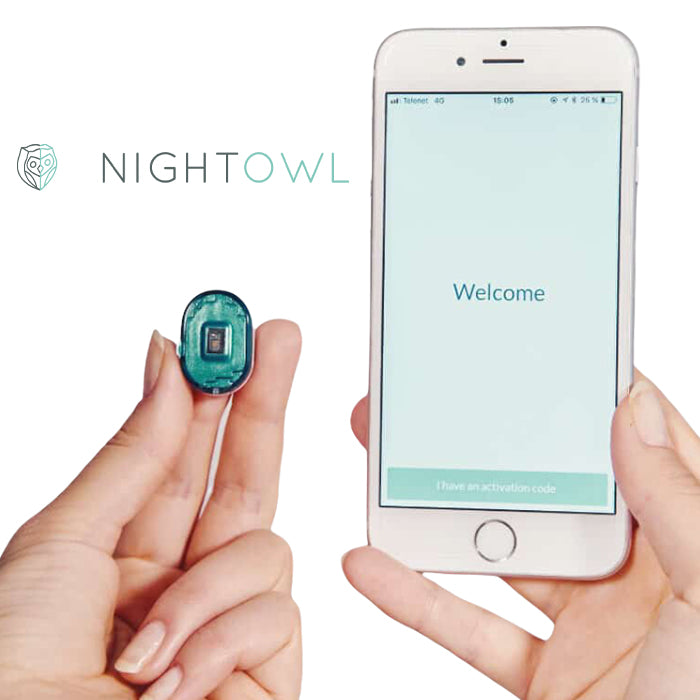
The Evening Owl Residence Sleep Check presents a easy, handy, and hassle-free solution to take a look at for sleep apnea from the consolation of your individual dwelling.
$139.99
Loud night breathing Options and Way of life Suggestions That Can Assist
Heard complaints about your nightly noise ranges? Whereas loud or persistent loud night breathing can be linked to situations like sleep apnea (particularly if paired with fatigue or gasping), not all loud night breathing indicators a severe well being challenge. Generally, it is simply easy loud night breathing!
Should you’re searching for manageable, inexpensive methods to quiet issues down, this part presents some “first step” methods you possibly can strive proper at dwelling.
Understanding Your Loud night breathing Sort
Understanding why you snore will help you discover the appropriate resolution. Right here’s a fast information:
|
Loud night breathing Sort |
Potential Trigger |
Advisable Method / Gadgets |
|
Nasal Loud night breathing |
Blocked nasal passages (because of allergy symptoms, chilly, irritation, or a deviated septum) |
Nasal strips, nasal dilators (like Bongo Rx EPAP), saline rinses, allergy administration, and doubtlessly septoplasty for extreme instances. |
|
Mouth Loud night breathing |
Respiratory by the mouth throughout sleep (could be a behavior or because of nasal blockage) |
Mouth tape (like Hush Mouth Tape or CPAPhero tape), chin straps, and generally oral home equipment. |
|
Tongue Loud night breathing |
Tongue enjoyable and falling again into the throat, obstructing airflow |
Oral home equipment (Mandibular Development Gadgets – MADs, like myTAP or SmartGuard), positional remedy (facet sleeping). |
|
Positional Loud night breathing |
Loud night breathing primarily happens when sleeping in your again |
Positional trainers (like CPAPology Sleep Noodle), specialised pillows or programs encouraging facet sleep (like Good Nora). |
Anti-Loud night breathing Instruments Price Attempting
Based mostly on the seemingly reason behind your loud night breathing, listed here are some well-liked instruments and gadgets:
-
Nasal Options (For Nasal Blockage/Loud night breathing):
-
Nasal Strips/Dilators: Exterior nasal strips or inner dilators bodily open the nasal passages. The NozeSeal Strapless CPAP resolution may also assist if sleep apnea is recognized.
-
Bongo Rx: A prescription EPAP (Expiratory Constructive Airway Strain) gadget utilizing small nasal inserts to create strain that retains the airway open.
-
Saline Rinses/Sprays: Assist clear congestion and cut back irritation naturally.
-
Mouth Options (For Mouth Respiratory/Loud night breathing):
-
Mouth Tape: Mild adhesive strips (like Hush Mouth Tape or CPAPhero tape) encourage nasal respiratory by retaining the lips sealed. A research printed on ScienceDirect means that stopping mouth respiratory can cut back airway collapse and loud night breathing.
-
Oral Home equipment (MADs): Customized-fitted or boil-and-bite gadgets (like myTAP or SmartGuard) worn within the mouth to maneuver the decrease jaw barely ahead, stopping the tongue from blocking the airway.
-
Positional Aids (For Again-Loud night breathing):
-
Positional Trainers: Wearable gadgets (just like the CPAPology Sleep Noodle bumper belt) make back-sleeping uncomfortable and encourage you to remain in your facet.
-
Good Nora: A contact-free system with a pillow insert that lightly strikes your head when it detects loud night breathing sounds, stimulating airway muscle groups with out totally waking you. Positional remedy is commonly efficient as gravity has much less impact on the airway when side-sleeping (that is additionally supported by the ScienceDirect research).
Way of life Changes for Quieter Nights
Do not underestimate the facility of easy habits! These low-cost, sustainable adjustments can considerably cut back loud night breathing threat:
-
Sleep on Your Facet: Gravity is much less prone to trigger your tongue or throat tissues to break down into your airway.
-
Keep a Wholesome Weight: Extra weight, particularly across the neck, can slender the airway.
-
Keep away from Alcohol and Sedatives Earlier than Mattress: These loosen up throat muscle groups, making airway collapse and loud night breathing extra seemingly.
-
Use a Humidifier: Conserving bed room air moist can cut back nasal and throat irritation and congestion.
-
Handle Allergy symptoms: Deal with allergy symptoms successfully with antihistamines, nasal steroid sprays (as mentioned beforehand), or by decreasing allergens in your bed room (HEPA filters, mud mite covers).
-
Give up Smoking: Smoking irritates and inflames airway tissues, contributing to loud night breathing and sleep apnea.
High 5 Tricks to Attempt Tonight for Higher Respiratory
-
Attempt sleeping in your facet (use pillows for help).
-
Rinse your nostril with saline earlier than mattress.
-
Think about an over-the-counter nasal strip.
-
Skip alcohol inside 3-4 hours of bedtime.
-
Elevate your head barely with an additional pillow (if snug).
Nonetheless Loud night breathing Regardless of Attempting The whole lot?
It may be time to check for sleep apnea!
Should you’ve given the following pointers and instruments a good shot and the loud night breathing persists, particularly if it is loud, disruptive, or accompanied by daytime fatigue, it may be extra than simply easy loud night breathing. It could possibly be an indication of underlying obstructive sleep apnea.
Do not ignore persistent signs. It may be time to contemplate getting examined.
Discover Sleeplay’s loud night breathing options additional or find out about getting examined for sleep apnea.
FAQs
What’s a deviated septum?
A deviated septum means the skinny wall (septum) product of bone and cartilage that divides your two nasal passages is off-center or crooked. This makes one nasal passage smaller than the opposite, which may hinder airflow and make respiratory by your nostril harder.
Can a deviated septum trigger sleep apnea?
Whereas a deviated septum does not immediately trigger obstructive sleep apnea (OSA), it will possibly undoubtedly make it worse or carry underlying OSA to gentle. The nasal obstruction will increase the hassle wanted to breathe, which may contribute to airway collapse additional down within the throat, particularly throughout sleep.
Are a deviated septum and sleep apnea associated?
Sure, there is a recognized connection. Research present individuals with a deviated septum have a considerably increased threat of additionally having or growing obstructive sleep apnea. The deviated septum contributes to nasal obstruction, which may worsen OSA signs or make therapies like CPAP more durable to make use of successfully.
How widespread is a deviated septum?
It is extremely widespread! Specialists estimate that as much as 80% of individuals have a point of septal deviation, although many do not expertise extreme signs or may not even know they’ve it except it causes noticeable respiratory issues.
Ought to I fear a couple of deviated septum and sleep?
It is best to listen in case you have signs. A minor deviation may not have an effect on your sleep in any respect. Nonetheless, in case your deviated septum causes vital nasal congestion, problem respiratory, loud loud night breathing, or forces you into mouth respiratory at night time, it will possibly definitely disrupt your sleep high quality and could possibly be worsening situations like sleep apnea. It is price discussing with a physician in case you have issues.
What are the signs of a deviated septum?
Widespread signs embody persistent nasal congestion (usually worse on one facet), problem respiratory by your nostril, frequent nosebleeds, noisy respiratory throughout sleep (together with loud night breathing), recurrent sinus infections, and generally facial ache or strain. You may also end up preferring to sleep on one explicit facet to breathe extra simply.
What are the signs of sleep apnea?
Hallmark signs of obstructive sleep apnea embody loud, disruptive loud night breathing, witnessed pauses in respiratory throughout sleep (apneas), gasping or choking sounds throughout sleep, extreme daytime sleepiness or fatigue regardless of ample hours in mattress, morning complications, dry mouth upon waking, problem concentrating, and temper adjustments like irritability.
How can I inform if my respiratory issues are from my nostril or sleep?
It may be difficult as signs overlap (like loud night breathing). Typically, issues primarily from a deviated septum contain nasal congestion, problem inhaling by the nostril, and possibly nosebleeds. Sleep apnea signs heart extra round occasions throughout sleep (respiratory pauses, gasping) and the implications after sleep (extreme daytime fatigue). Should you expertise signs from each classes, it is best to seek the advice of a physician.
Do I’ve a deviated septum?
Whereas signs like persistent one-sided nasal blockage strongly counsel it, you possibly can’t diagnose a deviated septum your self. An Ear, Nostril, and Throat (ENT) specialist can diagnose it definitively by a bodily examination, generally utilizing a small digital camera (endoscope) to look inside your nostril.
Is loud loud night breathing an indication of a deviated septum or sleep apnea?
A deviated septum may cause loud loud night breathing because of turbulent airflow by a narrowed passage. Nonetheless, it is also a main symptom of sleep apnea, usually accompanied by respiratory pauses and daytime fatigue. If loud night breathing is loud and protracted, it warrants investigation for each potentialities.
How does a deviated septum have an effect on CPAP remedy?
A deviated septum could make CPAP remedy more difficult. The nasal obstruction can block the circulation of pressurized air, requiring increased machine settings, which can result in discomfort, masks leaks (particularly with nasal masks), and finally make it more durable for customers to stay with their remedy (decrease compliance).
Can a deviated septum make my CPAP masks leak?
Sure, it will possibly. If the CPAP strain must be turned up excessive to get previous the nasal blockage attributable to the deviated septum, that pressure could make it harder to keep up a correct seal along with your masks, resulting in air leaks, particularly with nasal or nasal pillow kinds.
What sort of CPAP masks is finest if I’ve a deviated septum?
Many individuals with vital nasal obstruction from a deviated septum discover a full-face masks extra snug and efficient. As a result of it covers each the nostril and mouth, it will possibly ship the remedy air even when nasal respiratory is troublesome. Nonetheless, private desire varies, so talk about choices along with your sleep specialist or CPAP supplier.
Can fixing my deviated septum assist my CPAP?
Completely. Present process septoplasty (surgical procedure to straighten the septum) can considerably enhance nasal airflow. For CPAP customers, this usually means they will use decrease, extra snug strain settings, expertise fewer masks leaks, and discover it a lot simpler to tolerate and keep on with their remedy long-term. It does not treatment the OSA, nevertheless it optimizes the CPAP remedy.
Why does my nostril really feel blocked with my CPAP?
There could possibly be just a few causes. The deviated septum itself may be bodily blocking the airflow. The fixed air strain, particularly if excessive, can generally trigger nasal tissues to swell barely (congestion). Additionally, the airflow may be drying, resulting in irritation and congestion – utilizing the CPAP humidifier is important to assist forestall this.
How is a deviated septum handled?
Remedy will depend on symptom severity. For delicate points, managing signs with drugs like nasal steroid sprays (for irritation), decongestants (short-term use solely), or antihistamines (if allergy symptoms contribute) may be sufficient. Saline rinses and nasal strips may also assist. The one solution to appropriate the underlying structural drawback is thru surgical procedure (septoplasty).
Can surgical procedure repair a deviated septum?
Sure, septoplasty is a surgical process particularly designed to appropriate a deviated septum. The surgeon straightens the wall between your nasal passages, offering a everlasting resolution to the structural blockage.
Are there drugs for a deviated septum?
There are not any drugs that may bodily straighten a deviated septum. Nonetheless, drugs like nasal steroid sprays, decongestants, and antihistamines can successfully deal with the signs related to it, akin to nasal congestion, swelling, and irritation, making respiratory simpler.
Can a house sleep apnea take a look at detect sleep apnea attributable to a deviated septum?
A house sleep take a look at (HST) is designed to detect and diagnose Obstructive Sleep Apnea (OSA). It measures respiratory patterns, oxygen ranges, and respiratory effort to establish apnea occasions. Whereas it will not diagnose the deviated septum itself, it will precisely decide in case you have OSA, which can be influenced or worsened by your deviated septum.
What are the perfect loud night breathing options if I’ve a deviated septum?
In case your loud night breathing is primarily because of nasal blockage from the deviated septum, nasal strips or dilators will help open passages quickly. Saline rinses and managing any allergy symptoms are additionally helpful. Should you resort to mouth respiratory, mouth tape may assist encourage nasal respiratory (if attainable). For extreme, persistent nasal obstruction inflicting loud night breathing, septoplasty surgical procedure may be the simplest long-term resolution to enhance nasal airflow. Way of life adjustments like side-sleeping and avoiding alcohol earlier than mattress are all the time good supporting methods.
References
-
“Deviated Septum.” WebMD, WebMD, LLC, 7 Nov. 2023, www.webmd.com/allergy symptoms/deviated-septum. Accessed 1 Could 2025.
-
“Deviated Septum.” Cleveland Clinic, Cleveland Clinic, 7 Mar. 2023, my.clevelandclinic.org/well being/illnesses/16924-deviated-septum. Accessed 1 Could 2025.
-
Yeom SW, Kim MG, Lee EJ, Chung SK, Kim DH, Noh SJ, Lee MH, Yang YN, Lee CM, Kim JS. Affiliation between septal deviation and OSA diagnoses: a nationwide 9-year follow-up cohort research. J Clin Sleep Med. 2021 Oct 1;17(10):2099-2106. doi: 10.5664/jcsm.9352. PMID: 34606442; PMCID: PMC8494085.
-
Mayo Clinic Employees. “Deviated Septum.” Mayo Clinic, Mayo Clinic, www.mayoclinic.org/diseases-conditions/deviated-septum/symptoms-causes/syc-20351710. Accessed 1 Could 2025.
-
C. Pandya, C. Guilleminault, “Chapter 57 – Loud night breathing.” Ideas and Follow of Sleep Medication, edited by Michael J. Aminoff, Robert B. Daroff,. ScienceDirect, https://www.sciencedirect.com/science/article/abs/pii/B9780123851574005777?viapercent3Dihub. Accessed 1 Could 2025.
-
Miyamura Okay, Nakashima D, Nakayama T, Wada Okay, Capasso R, Chiba S. Morphology of Nasal Septal Deviation in Obstructive Sleep Apnea Sufferers and its Remedy Technique. Laryngoscope. 2025 Apr;135(4):1520-1524. doi: 10.1002/lary.31876. Epub 2024 Nov 4. PMID: 39494783. Accessed 1 Could 2025.
